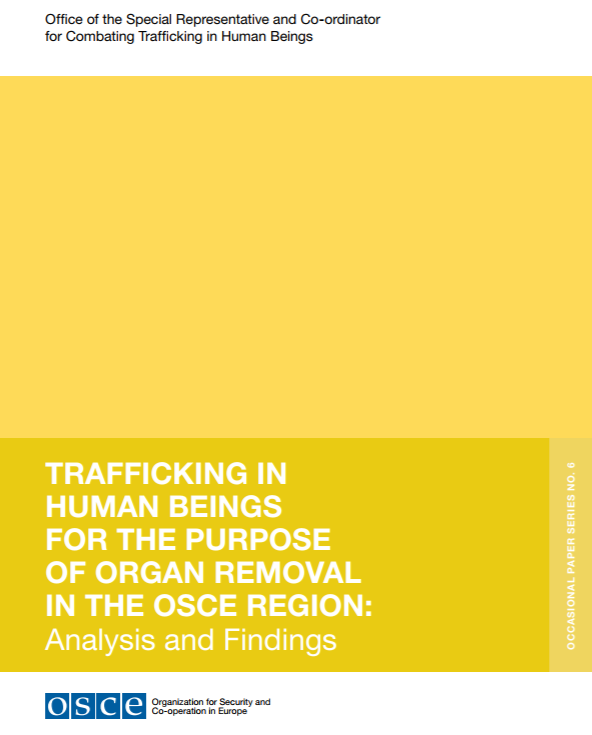In line with the OSCE Action Plan to Combat Trafficking in Human Beings, the SR is mandated to address trafficking in human beings for the purpose of organ removal. The SR initiated the research project in 2011, supported by the Strategic Police Matters Unit (SPMU), to conduct a comprehensive overview of the current situation and a deeper qualitative analysis of this form of human trafficking within the OSCE region. The project aimed to identify vulnerable groups and the modus operandi of criminal organizations, to identify gaps in national legislation, as well as to disclose obstacles preventing efficient investigation and prosecution of this crime. This 6th Occasional Paper in the Occasional Paper Series of the OSCE OSR/CTHB has restricted its focus to the trafficking of human beings for the purpose of organ removal in the OSCE region. It has, therefore, largely excluded analysis of cases involving the illegal sale and purchase of organs, tissues and cells (OTC) that do not involve the trafficking of a human being. The research for this study, based primarily on desk research and analysis, identified cases of human trafficking for organ removal in the OSCE region, some of which have not previously been identified, collated and analysed.

